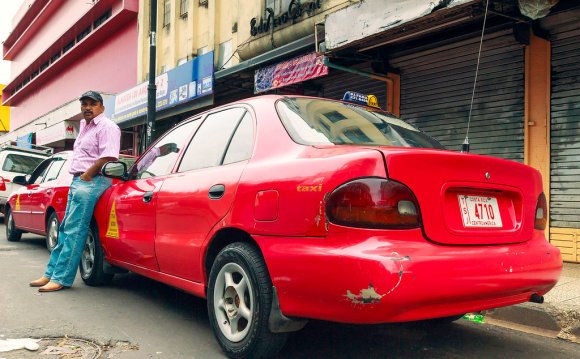
Ways to help old people Costa Rica
 In those posts, you’ll find info on how to get started, the sites that worked the best for us to get house sits, and lots more.
In those posts, you’ll find info on how to get started, the sites that worked the best for us to get house sits, and lots more.
Where Should I Live?
When figuring out where you want to live, think about your ideal climate and how close you want to be to amenities. The beach is much hotter and more humid than the mountains, and for this reason, many people prefer to live in the Central Valley outside San José. The Central Valley and its surrounds (Grecia, Atenas, Heredia, etc.) are also closer to shopping, restaurants, and major hospitals. In rural areas, it can be more difficult to find things, there are fewer restaurants, and buses run less often so be sure to take this into consideration, especially if you don’t plan to buy a car.
 Wherever you decide, it’s best to rent first to try it out. A large percentage of people who move to Costa Rica leave within the first year or two, so before you completely turn your life upside down, visit a few different areas on vacation first. Then once you’ve picked an area you’re comfortable with, rent there for at least a year. That will allow you to figure out exactly where you want to live and feel out the climate in all seasons. We originally thought we wanted to live in Uvita near the beach but found out that it is really hot so love living in the nearby mountains where there’s a nice breeze. In most places the weather can vary even from one side of town to the other. In Grecia, for example (a popular expat town in the Central Valley), there are several ridges and the climate differs on each of them.
Wherever you decide, it’s best to rent first to try it out. A large percentage of people who move to Costa Rica leave within the first year or two, so before you completely turn your life upside down, visit a few different areas on vacation first. Then once you’ve picked an area you’re comfortable with, rent there for at least a year. That will allow you to figure out exactly where you want to live and feel out the climate in all seasons. We originally thought we wanted to live in Uvita near the beach but found out that it is really hot so love living in the nearby mountains where there’s a nice breeze. In most places the weather can vary even from one side of town to the other. In Grecia, for example (a popular expat town in the Central Valley), there are several ridges and the climate differs on each of them. Communities all have different quirks like this and until you spend some time there, you won’t know what’s right for you.
Communities all have different quirks like this and until you spend some time there, you won’t know what’s right for you.
Tips on Finding a Rental: From our experience and from talking to other expats, it’s best not to commit to anything long term until you get to Costa Rica. Prices are often inflated online and through real estate agents, so if you can come down and talk to people in the community, you can usually find a better deal. Plus, you obviously have the benefit of seeing the house for yourself. A lot of people (us included) rent something very short term at first in the area they want to live, then start their search for a long-term rental when they get here.

How Do I Get Residency?
There are a few different ways to get residency. One involves proof of a certain amount of money coming in under a pension or retirement plan. Another also involves proof of funds coming in (non-pension/retirement) or you can make a large deposit into a Costa Rican bank account. A third relates to becoming a resident as an investor. Finally, you can become a permanent resident by marrying a Costa Rican or having a baby in-country. For more info on the specifics, check out the ARCR’s website. They help a lot of people moving to Costa Rica with residency, setting up bank accounts, etc. and have the most up-to-date information.
Some people start the residency process before moving while others wait until they get here. It is possible to apply for residency without an attorney, but if you don’t speak Spanish, you’ll need someone to translate the documents. We have yet to experience the adventure of applying for residency, but have heard that it can happen fast, in a couple of months, or very slow, up to a couple of years. It just depends.













